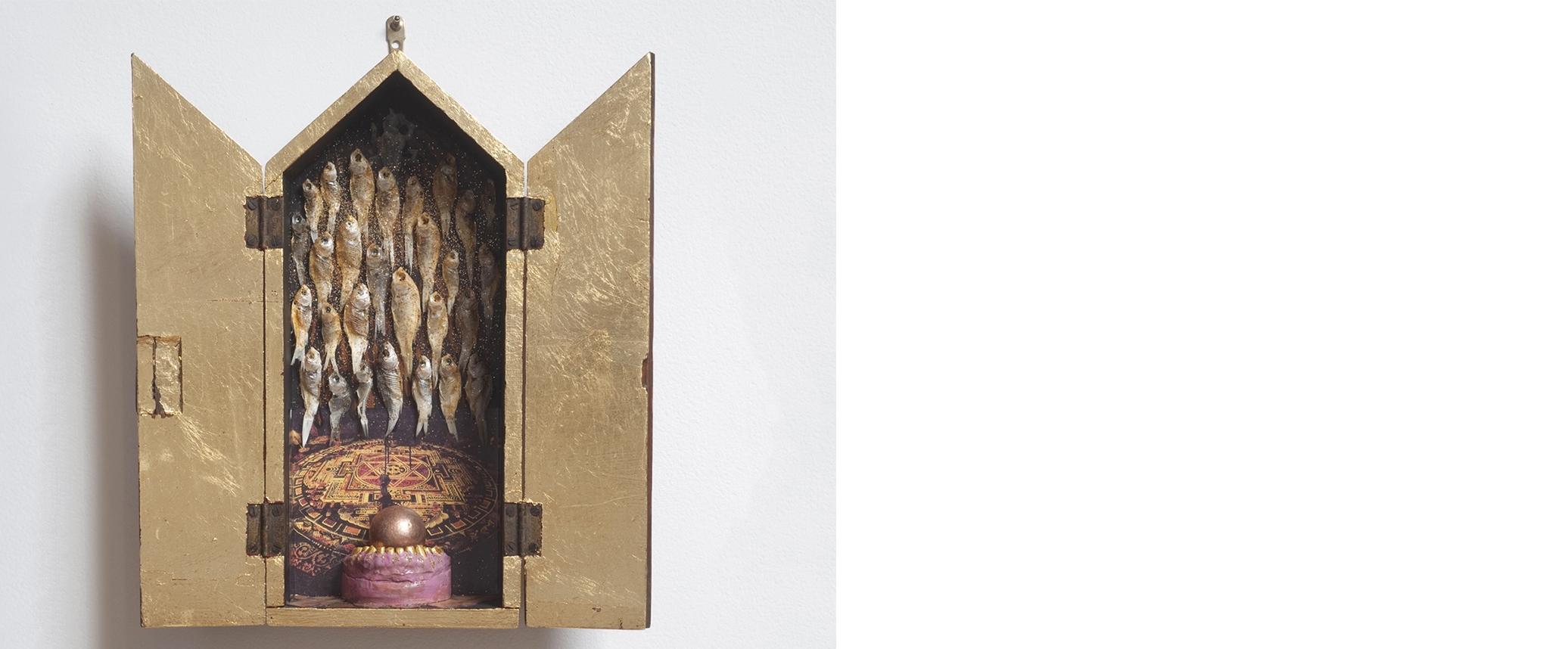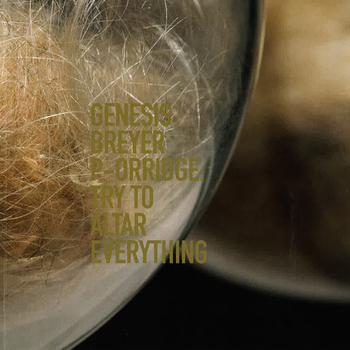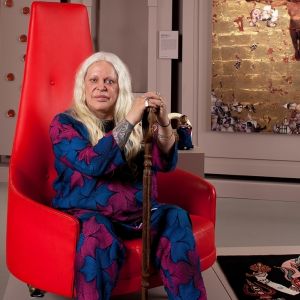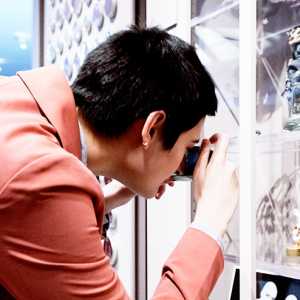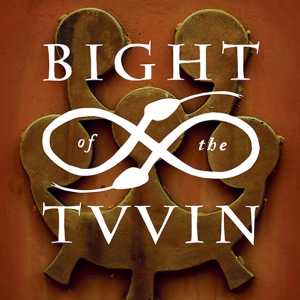
For nearly half a century Genesis Breyer P-Orridge has been questioning the meaning and substance of identity through artistic endeavors, willful reincarnation, and physical shapeshifting. Try to Altar Everything, a selection of paintings, sculptures, and installations, will explore the ways that Hindu mythology and Nepal’s Kathmandu Valley have influenced the artist and h/er work.
Both Genesis Breyer P-Orridge and Nepal itself have long shirked the confines of “either/or.” Hybrid traditions are a fixture of life and culture in Nepal, as people may even identify as Hindu and Buddhist at the same time. Genesis, along with h/er late wife Lady Jaye, underwent physical alterations to create an elective and creative gender identity through their practice of Pandrogeny. The idea of identifying as both sides of a categorical option resonates with Nepalese approaches to identity and religion, as well as with Breyer P-Orridge’s own artistic practice, grounded in devotion and ritual.
Incorporating new works produced in Nepal, Try to Altar Everything will also give visitors opportunities to personally interact with the artist and engage with the provocative themes of self-expression and devotion.
Curated by Beth Citron
Listen Here
Genesis Breyer P-Orridge will personally answer telephone calls in the gallery at spontaneous times. Follow the Rubin Museum on Facebook, Twitter, or Instagram to find out when s/he is in the gallery, and then call 646.979.3340 to speak with h/er. Museum visitors will be able to hear h/er take your call.
TRY TO ALTAR EVERY THING
Bring your own small offering to the admissions desk and contribute to the creation of this site-specific artwork. The first one thousand participants will receive a limited-edition, hand-crafted “psychic cross” pendant designed by the artist. Objects will be arranged and rearranged throughout the gallery by the artist for the length of the exhibition. The installation enacts the concepts of devotion, exchange, and community that are at the heart of the artist’s multidisciplinary practice.
OBJECT RESTRICTIONS
Please note, offerings must be no larger than two-by-three inches. The following materials will NOT be accepted: weapons, ammunitions, explosives, lighters, matches, drugs, food, liquids, knives, scissors, blades, candles, chemicals, human remains, ashes, bodily fluids, human by-products, body parts, teeth, live or dead animals, and organic materials such as plants, dirt, etc. All offerings will be accepted or declined at the discretion of the Rubin Museum staff and will not be returned.
Plan your visit
Send Your Comments
Comments are moderated, and will not appear on this site until the Rubin has approved them.

